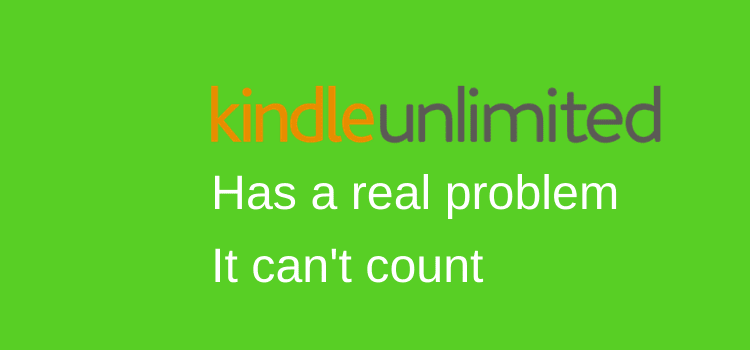
Kindle Unlimited (KU) has one big flaw. It’s the Kindle word count.
Amazon cannot count the Kindle words per page readers read, the number of pages readers flip, or the time readers spend reading an ebook.
For avid readers who read a lot of books per month, using their 30-day free trial or spending $9.99 a month for their Kindle Unlimited membership to read as many books a month as they can, it is not an issue.
They can select from over a million books in the Kindle Store and read to their heart’s content. Who cares about the Kindle word count?
But for honest authors, Amazon’s inability to calculate precisely how many words and pages a reader reads of a Kindle book via their Kindle Unlimited subscription services is costing authors a lot of money.
Why?
Because scammers and ebook stuffers using jump links are scooping up a sizeable percentage of the monthly pot, Amazon is having trouble dealing with it.
Amazon knows there is a problem and, as usual, has reacted with a sledgehammer that has hit a few scammers.
But also adversely affected honest authors who had no idea they had done anything wrong.
I can’t vouch for the honesty of the authors in this article on Yahoo News, but their stories ring true when you have a problem as an author with Amazon.
Particularly in the response from Amazon when you ask why about anything.
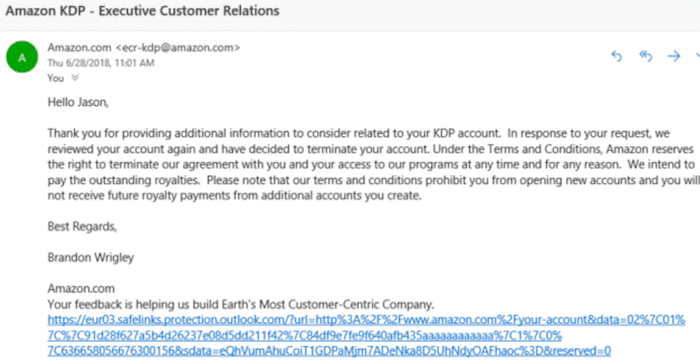
If you ever want a definitive answer to a why question, don’t bother asking KPD help or Amazon Customer Relations.
You will almost always get the same response. “Refer to our Terms and Conditions.”
Finding answers
Douglas Adams could well have been referring to Amazon in this quote.
“But the plans were on display…”
“On display? I eventually had to go down to the cellar to find them.”
“That’s the display department.”
“With a flashlight.”
“Ah, well, the lights had probably gone.”
“So had the stairs.”
“But look, you found the notice, didn’t you?”
“Yes,” said Arthur, “yes, I did. It was on display in the bottom of a locked filing cabinet stuck in a disused lavatory with a sign on the door saying ‘Beware of the Leopard.”
But you can go to Amazon’s Terms and Conditions if you have hours to waste or you are a lawyer and try to understand.
On book stuffing, there is this page of rules.
Well, at least it mentions something about 10%.
But to find out why you get your account suspended, well, then it gets complicated.
After an hour of searching, this was the best I could find.
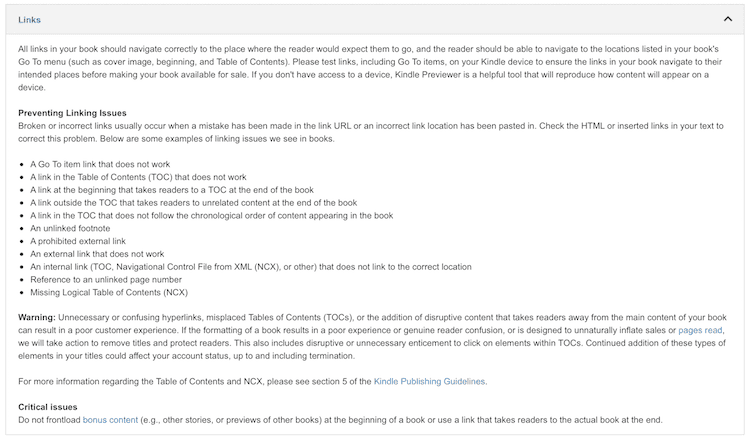
You can find the above section on this page if you scroll down to the section labeled, Links.
The key phrase in the email above from Amazon KDP Executive Customer Relations is this.
Amazon reserves the right to terminate our agreement with you and our programs at any time and for any reason.
In other words, if you are an author and you have a problem with Amazon KDP or Kindle Unlimited, well, bad luck.
Amazon can terminate your account at any time without giving you any reason why.
Amazon has millions of ebook titles in Kindle Unlimited, so losing a few hundred doesn’t matter.
Scammers clean up
But the scammers are having a wonderful time and making bucketloads of money.
David Gaughran has written many informative and in-depth articles about Kindle and Kindle Unlimited scams.
But this one on KU book stuffers, in particular, is well worth reading.
One image at the end of the article highlights another one of Amazon’s KU word and page counting problems.
It can’t account for extra paragraph breaks on a page. All the blank lines in this image below count as words read on any Amazon device or app.
From KDP help: Non-text elements within books including images, charts, and graphs will count toward a book’s KENPC.
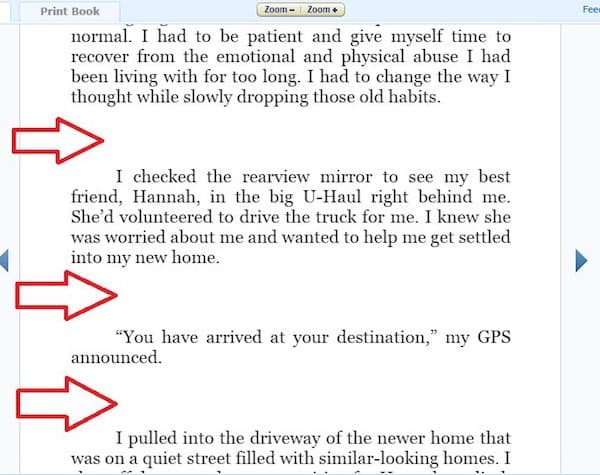
All scammers have to do is fill a Kindle ebook with words (and lots of space). Then add a jump link at the beginning to lure readers to the end of the book.
And then, presto, the whole ebook is seen as read by Amazon Kindle Unlimited, and the scammers clean up.
Kindle Unlimited page read calculation is so rudimentary that, in fact, links in the table of contents perform the same action as a jump link, so how can Amazon tell the difference?
Counting words
Why can’t Amazon count words, pages, and reading time on a Kindle device or Kindle app?
Because it is impossible.
An ebook is similar to a web page because you scroll from top to bottom.
It doesn’t matter if it is 20 pages or 1,000 pages. It is really just one webpage of text.
If you use Google Analytics, you will know that Google can’t count the time a reader spends on a web page.
It can only record time if there is a trigger action, such as clicking a link on a page or clicking a menu item to navigate to another page. Analytics Edge explained the problem this way. (Unfortunately, this article is no longer available.)
“Google Analytics Time on Page and Google Analytics Session Duration are typical examples until you discover one not-so-obvious fact: Google can’t measure the time a user spent looking at the last page of their visit to your site.
This happens because Google uses the time of the next page view to determine the time you spent looking at the current page. On the last page, there is no next page recorded, so the Time on Page is unknown (recorded as 0) and the Session Duration ends when they opened the last page.”
If a site visitor leaves a page open in a browser tab, even for days, without a click, Google can’t calculate the time. So it records zero time for session duration.

This is why Google Analytics reports a longer time on an individual page than on a complete session.
But Google can record scroll depth quite accurately.

I believe this is how Amazon calculates Kindle Unlimited ebook reading and why the measurement is so unreliable.
Basing page reads on scrolling depth is why KU has such a problem with ebook stuffers. It cannot count words read or time spent on an ebook because an ebook is, in fact, one long webpage.
It can only record an estimation of reading based on how far a reader progresses through the ebook. But with no recorded measurement of time or speed to read one book.
If a KU reader opens an ebook, starts reading chapter one, and then clicks a link to go to the end of the book, KU records this as 100% progress in reading Kindle Unlimited books.
It’s all a bluff, and when Amazon thinks it finds an author or two who knows it’s all bluff and profits from the weakness, Amazon reacts by taking the easy way out.
Amazon reserves the right to terminate our agreement with you.
Amazon needs to own up, but it won’t
Kindle Unlimited scammers and ebook stuffers are not the real issues here.
The real problem is Amazon’s inability to set clear, easy-to-understand guidelines and to monitor and measure KU readings accurately.
Kindle Edition Normalized Page Count (KENPC) is an oxymoron because I don’t believe Amazon can count pages or words.
Until Amazon can find a better system to track and record Kindle Unlimited ebook-reading correctly, the scammers will keep finding ways to make money, and honest authors publishing ebooks will lose out.
Or be terminated.
Note on Kindle word count
How to find the word count for a Kindle ebook? You can’t.
Amazon used to show the word count under the Look Inside widget but removed this data some years ago. At that time, a Kindle page was estimated at 187 words. But I believe this number is not relevant any longer.
The only way now is to check the number of pages, which is based on print books, not ebooks.
I checked a few of my books. Knowing the manuscript word count, I calculated the number of pages Amazon lists in my product details.
My best guess is that you need to multiply the number of pages by between 240 and 265 words. This will give you an approximation of the word count.
A book of 250 pages will be around 65,000 words.
But that doesn’t tell you how many KENPC pages there are in an ebook.
And that is what authors are paid for from KU page reads.
Related Reading: Is Kindle Unlimited Pay Per Page Read A Fair Deal For Authors?
Share This Article

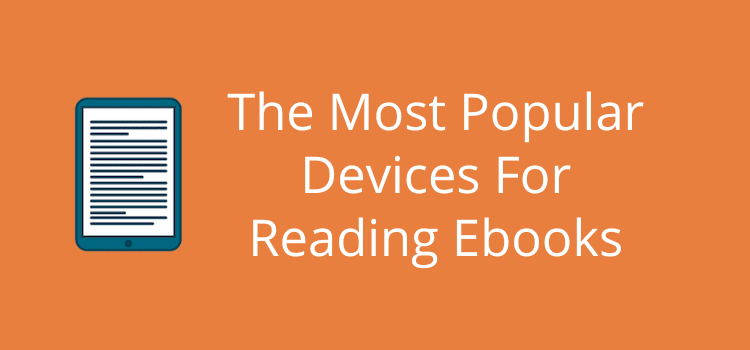

Oh god I found this in the best moment. I just put out a book in amazon, paperback and ebook both, and as I have an amount of readers in my previus wattpad, they all started to download my ebook and just Yesterday I got an email from amazon calling me fraudulent for altering sales and saying that I’m going to get banned if this keep on, which let me really perplex???? I have done nothing wrong and now I dont know how to fix this cos they don’t respond to my email showing then that I have a lot of readers who wanted to read thar box in particular. I just dont know what to do….
(Sorry for any mistake, English is not my mother language)
Unfortunately, all you can do is contact Amazon KDP to find out what went wrong. But it usually takes at least 24 – 48 hours to get a response.